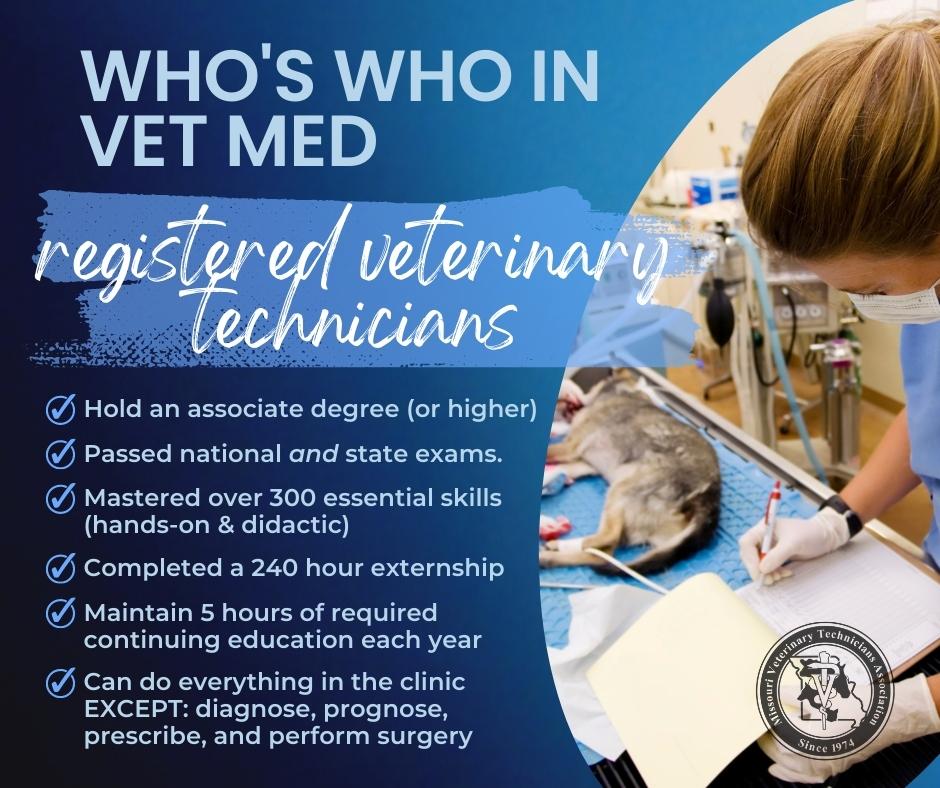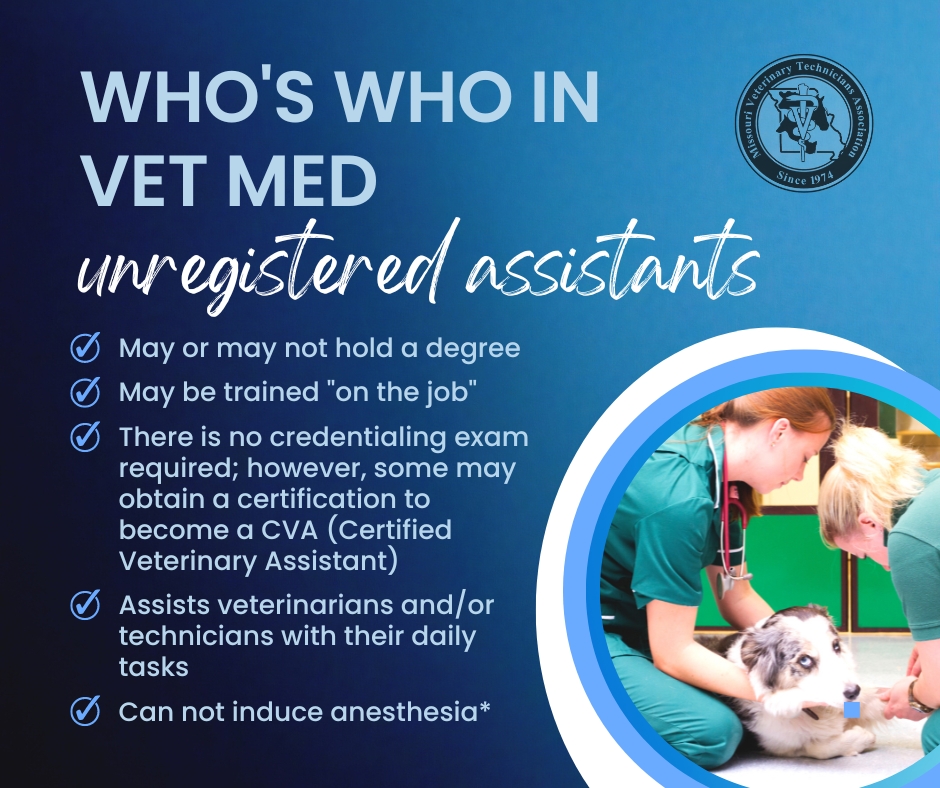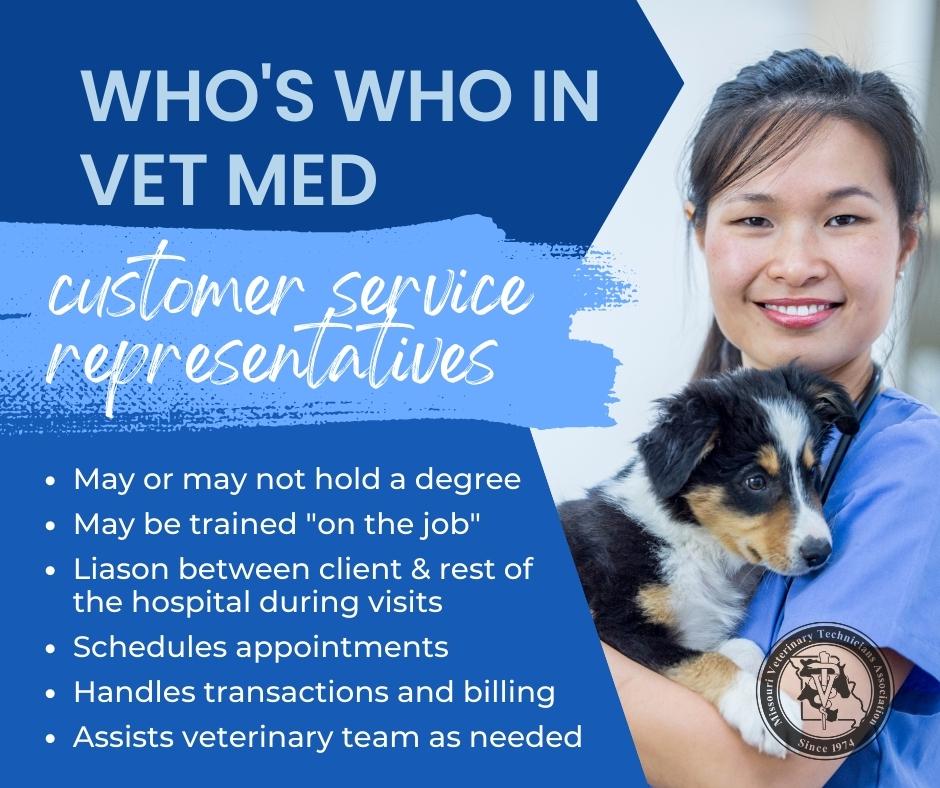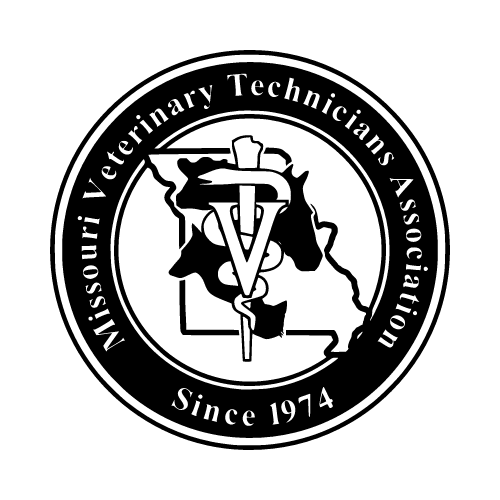Who's Who in Vet Med
There are many diverse roles in the vet clinic that work together like a well oiled machine, but many clients don't know of some of the others "behind the scenes".
To help educate on the different roles, we have created a series of infographics to highlight a few of the more common ones. Please feel free to share this on social media outlets to help educate clients and/or the general public on the different roles.
Registered Veterinary Technicians

RVTs in Missouri have graduated from a veterinary technology program accredited by the American Veterinary Medical Association (AVMA) or equivalent and hold an associate degree (or higher), have mastered over 300 hands-on and didactic essential skills as regulated by the AVMA's Committee on Veterinary Technician Education and Activities (CVTEA), completed a minimum 240 hour externship, have passed both national and state board exams, and must maintain a minimum of 5 hours of continuing education units each year for license renewal. RVTs can do everything in the clinic EXCEPT diagnose, prognose, prescribe, and perform surgery.
Credentialed technicians may go on to become specialized in one (or more) of the 16 vet tech specialties currently recognized by the National Association of Veterinary Technicians in America.
Graduates of an associate program are considered veterinary technicians, while graduates of a bachelors program in veterinary technology are considered veterinary technologists (RVTg). It is important to note that, at this time, RVTg is not a legally recognized title in Missouri, though it is professionally recognized.
Unregistered Assistants

Unregistered assistants in Missouri may or may not hold a degree and may be trained "on the job" with or without formal education or experience. They may include graduates of an accredited veterinary technology program that have not yet taken their board exams or someone with no experience at all. While there is no credentialing exam required, some unregistered assistants may pursue education and certification to become a certified veterinary assistant (CVA). This certificate is awarded by the Missouri Veterinary Medical Association but is not legally recognized by the Missouri Veterinary Medical Board. While unregistered assistants may perform many of the same tasks as RVTs, their level of supervision by the DVM is more strict and they can not legally induce anesthesia at all. It's also important to note that the title "certified veterinary assistant"/CNA is not a legally recognized title in Missouri, but it is professionally recognized.
Customer Service Representatives

Customer Service Representatives, or CSRs, are generally the first person you interact with at the veterinary clinic. While their primary job may be customer service and clerical work, many are often cross-trained to help assist the medical team in a variety of ways. There is no formal education or certifications required and anyone with strong customer service skills that is used to working in a fast paced environment can often do very well in this type of role. It's also not uncommon for many unregistered assistants to be dual trained for crossover duties as a CSR and vice-versa.
